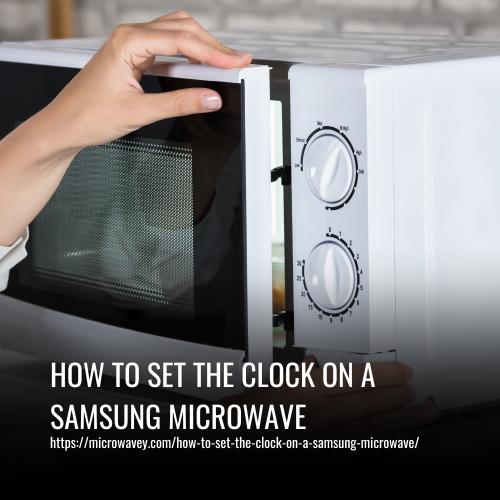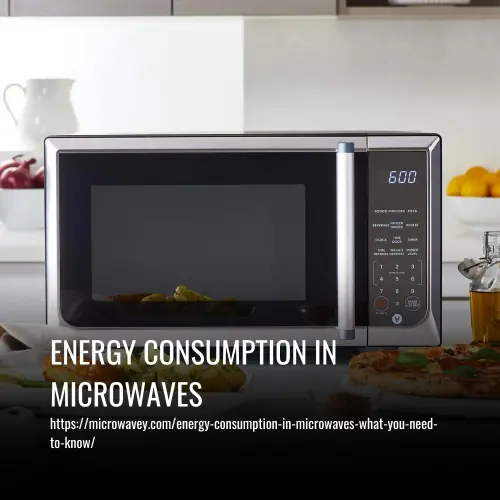Microwaves are safe and easy to use, convenient for quick meals, and effective. However, they are expensive and potentially can cause burns and other health-related issues. Microwaves continue to be a staple household item. If properly used and maintained, microwaves are useful for many purposes.
Pros:
- 1. Saves money for owners
- 2. Reheating is easy
- 3. Environmentally friendly
Cons:
- 1. Certain social stigma
- 2. Poor taste and texture
- 3. Some health risks

The Pros And Cons of Microwave
Pros:
1. Saves money for owners: Microwaves use less energy compared to ovens, saving money on energy bills. They are also cheaper up front compared to other cooking appliances.
2. Reheating is easy: Microwaves are convenient for reheating food quickly and efficiently. They can also defrost food and perform other tasks like heating up plates or disinfecting items.
3. Environmentally friendly: Microwaves are energy-efficient and produce no fumes, making them more environmentally friendly than other cooking options.
Cons:
1. Social stigma: Microwaves are sometimes viewed negatively by some chefs and individuals who believe they encourage unhealthy eating habits.
2. Poor taste and texture: Some people find that food cooked in a microwave can have a different taste or texture compared to traditional cooking methods. Microwaves can sometimes produce food that feels wet or soggy.
3. Health risks: Some studies suggest that microwaving food in plastic containers can lead to the ingestion of harmful chemicals like phthalates, which may disrupt hormones.
Is it Worth it?
We will address whether it is worth purchasing and owning a personal microwave. In short, yes, you should 100% purchase and own a microwave.
Living without a microwave can be detrimental in cases where you may need a quick meal before heading off for work or school. The lack of a microwave also prevents you to make those decisions and instead “forces” you to use an oven or stovetop that takes longer to heat up and prepare.
If you are thinking about long-term use and getting the most out of it, be willing to purchase a microwave as it will be with you for a while, assuming you are maintaining it properly. I would say not to buy a microwave if you are only going to use it sparingly. However, you may never know when you would need it, so buying one would ensure a backup method exists if your primary method of cooking food isn’t doing the job.
If you are a college student like me, having a microwave is a must. Again, relating to being in a rush, college students, for example, are busy with classes and possibly work, therefore not having sufficient time during the weekday to prepare anything that takes time. Unless they are excellent planners, having a microwave is a great way to get what you need and go. Lastly, some college students, or people in general, are lazy or not willing to cook extensively often, resulting in a microwave purchase to focus more on doing other things than cooking.
In the end, it will all depend on what you will use the microwave for. Generally, you should have a microwave for its convenience, accessibility, and effectiveness. Never think you don’t need one as it is a handy backup in case you do. Finally, longevity for each will be a lifesaver as years go by, saving money. Yes, go get yourself a microwave.
FAQs
Microwaving food is generally safe, as long as proper microwave-safe containers are used. It’s important to follow guidelines for reheating and cooking to ensure even heating and proper food safety.
Microwaving food can actually help retain more nutrients compared to other cooking methods, as it requires less water and shorter cooking times, which helps preserve the vitamins and minerals in food.
Microwaves emit low levels of radiation, but as long as the appliance is in good working condition and used according to the manufacturer’s instructions, there should be no health risks.
There is no evidence to suggest that microwaving food can cause cancer. Proper use of microwave-safe containers and regular maintenance of the microwave can help minimize any potential risks.
Microwaving can sometimes result in uneven heating, which can affect the taste and texture of certain foods. However, with proper techniques and adjustments, microwave cooking can produce delicious and evenly cooked meals.
Microwaves are more energy-efficient than traditional cooking methods, which can reduce overall energy consumption and carbon emissions. However, it’s important to dispose of old microwaves responsibly to minimize environmental impact.
Conclusion
In conclusion, while microwaves offer convenience and time-saving benefits, it’s important to consider the potential health risks and environmental impact they may have. Ultimately, the decision on whether or not to use a microwave comes down to personal preference and lifestyle. So weigh the pros and cons, and make the choice that best aligns with your values and needs. Happy cooking!


